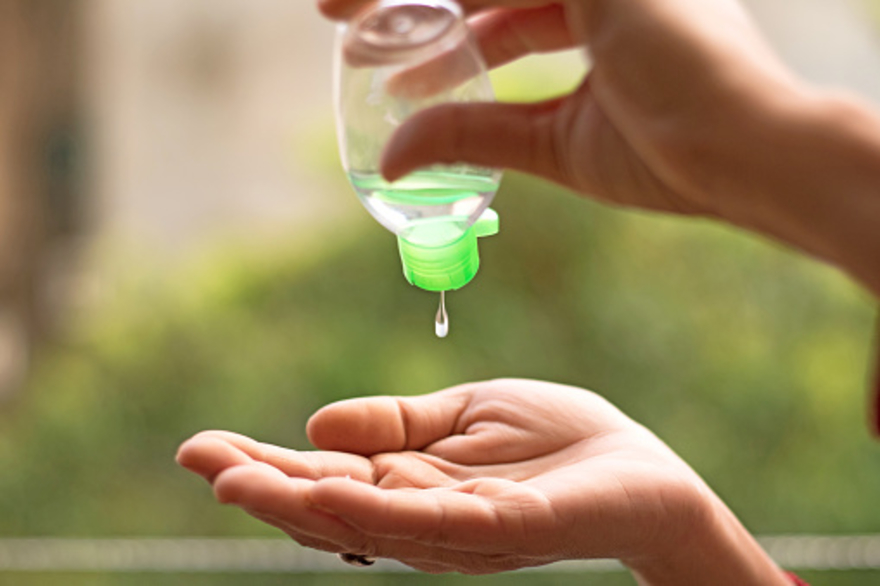CDSCO issues advisory to expedite application process of homoeopathic hand sanitisers
Experts seek more clarity on the issued advisory and insist that SLAs should ensure quality compliance before granting permission for manufacture
The Central Drugs Standard Control Organisation (CDSCO) has issued an advisory to licensing authorities and drug Controllers of homoeopathy in all States and Union Territories, to expedite the application process for grant of approval, license, and renewal of license for hand sanitisers.
It mentions that the State Licensing Authorities (SLAs) are requested to complete the licensing/approval process expeditiously and dispose of the applications of hand sanitisers at the earliest.
In the advisory, the Director of the Homoeopathic Pharmacopoeia Laboratory (HPL) (Ministry of AYUSH) has stated that since glycerine and alcohol are mentioned in the homoeopathic pharmacopoeia, they should be taken into the consideration by State Licensing Authority (SLA) while granting license for hand sanitisers to homoeopathic manufacturers.
However, commenting on the issued advisory, a retired Drug Controller of Haryana, said, “It is a welcome step that homoeopathic manufacturers are being permitted to manufacture hand sanitisers, since they are already using ethanol (ethyl) in the manufacturing of homoeopathic medicines. The letter of DCGI is clear to the extent that they can manufacture hand sanitisers only by using ethanol and not by using isopropyl alcohol. A bottleneck is Rule 106-B, which prohibits the sale of homoeopathic medicine which contains more than 12 per cent ethanol, in a bottle of more than 30 ml.”
He further elaborated, “In the case of homoeopathic medicine, the percentage of alcohol needs to be mentioned on the label but in the case of cosmetics, it is not mandatory. The words, ‘homoeopathic medicine’ needs to be mentioned on the label if it is manufactured under homoeopathic license on form 25-C under Drug Rules & homoeopathic medicines which can be sold by a retailer, who is holding a license on Form 20-C for sale of homoeopathic medicines. In addition, that the sale of homoeopathic hand sanitizers can also be done by retail chemists who hold retail license on Form- 20 & 21under Drug Rules in addition to the dealers who hold license to sell homoeopathic medicines on Form 20-C as per the amendment made in the Rules subject to certain conditions.”
He also informed that, “In my letter to the DCGI dated May 16, I have already suggested for the uniformity in the law for the manufacture of hand sanitisers, since these are now being manufactured under different systems of medicine and as cosmetics, which also have different provisions of labelling.”
Dr Kamlesh Shende, Ex-Technical officer and Joint Commissioner, Maharashtra FDA said, “The issued advisory by the CDSCO is silent on the formulas of hand sanitisers. The office of DCGI should have advised the SLA on the formula, its quality control parameters and labelling provisions, as well as the method of usage by consumers, the quantity to be applied etc. Due to this shortfall, it is likely that the market can get flooded with inappropriate, unsafe and inefficacious sanitisers. The Drugs and Cosmetics Act 1940 and Rules do not give enough information on the aforementioned areas for products which are to be approved as sanitisers, under a homoeopathic license. In the absence of these unspecified provisions for homoeopathic products the manufacturers are free to bring all types of products in the market.”
Manmohan Taneja, Assistant State Drugs Controller, FDA-Haryana commented, “The issued letter doesn’t mention anywhere that an SLA shall grant a licence or approval for homoeopathic hand sanitisers. Through the advisory letter, the DCGI is only conveying that Director HPL, Ministry of AYUSH had opined that ingredients like glycerine and alcohol were mentioned in the homoeopathic pharmacopoeia of India (HPI), and therefore the DCGI has written this for SLAs consideration only. The consideration of SLAs may or may not be in favour of granting the licence to the manufacturer of homoeopathic hand sanitisers. The definition of homoeopathic medicines as per rule 2(dd) includes not only ingredients contained in HPI or their combination, but also techniques of manufacture, therapeutic efficacy or homoeopathic provings. Moreover, the principles of homoeopathic medicines also need to be looked into.”
Dr GL Singla, Retired Drug Controller of Haryana said, “Considering the pandemic situation due to a coronavirus, the Drug Controllers of the country should also monitor the quality of hand sanitisers in their respective States. Because of the crisis, the regulatory authorities have issued several manufacturing licenses and in many cases, it was observed that the products (hand sanitisers) failed at the quality ground and do not comply with regulatory requirements. So, to avoid such situations, before granting of approval/ license/ renewal of license to manufacturers of hand sanitisers, the SLA should ensure that the necessary regulatory requirements for the manufacturing of hand sanitisers are met.”
To give more context to his views, “As per the Drugs and Cosmetic Act, 1940, if any, drug manufacturing license holder fails to comply with the required quality, it will be punishable with a minimum five years imprisonment and a fine of not less than Rs one lakh. Whereas, in the case of homoeopathic manufacturers, the same offence is punishable only for a year.”
Commenting on the manufacturing license applications for the hand sanitisers, Dr Hemant Koshia, Commissioner, FDCA Gujarat, informed, “Presently, the state has around 10 homoeopathic manufacturers, but so far, not a single homoeopathic hand sanitiser manufacturer has approached us for the license. In fact, we have issued a total of 2266 new product licenses to 75 firms for manufacturing hand sanitisers. Currently, the state has 980 hand sanitiser manufacturers, which include Ayurvedic (102), Cosmetic (554) and Allopathic (224). And the state has the capacity to manufacture approximately two crore litre sanitisers every day, which is in surplus of the demand.”
Earlier, PM Modi had interacted with AYUSH stakeholders on March 28, 2020 and suggested that AYUSH medicines manufacturers should utilise their resources towards producing essential items like sanitisers.
[email protected]
[email protected]
- Advertisement -


